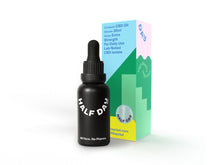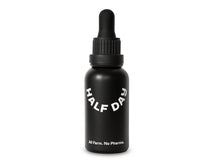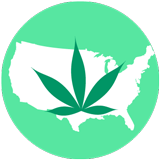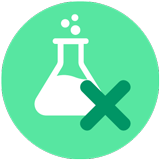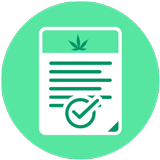
Why CBD isolate vs. full spectrum?
Hemp plants contain a combination of cannabinoids, flavonoids, terpenes and fatty acids—which experts believe can work together in beneficial and therapeutic ways. However, full-spectrum products do contain trace amounts of THC. The federally legal limit—to which all Half Day products adhere—is less than .3%. For people who are concerned about using products with trace amounts of THC, CBD isolate may be the best option. CBD isolate is what it sounds like: isolated CBD with no other cannabinoids. The CBD isolate than we use is lab-tested at 0% THC. While our isolate products contain no THC, some drug tests may not be sophisticated to differentiate between cannabinoids. This means than there is a risk—however small—of failing a drug test when using any hemp-derived products.
Family Fave
Noah's favorite
 "I like the 2000mg isolate oil because there’s no taste and I can make cocktails with it."
"I like the 2000mg isolate oil because there’s no taste and I can make cocktails with it."

FAQs
-
What is CBD isolate oil?
CBD isolate is pure CBD—meaning than it does not contain other cannabinoids found in full-spectrum CBD oils. CBD isolate oil should lab test at 0% THC, while full-spectrum products may contain up to .3% THC (to be federally legal).
-
How do you make tasteless CBD oil?
Our CBD isolate oil is made from just two ingredients: CBD isolate and MCT (coconut) oil, both of which are virtually tasteless. Our full-spectrum oil, on the other hand, contains CBD oil with more of the naturally occurring plant compounds left in—including fatty acids and terpenes—which contribute to a more noticeable, botanic flavor.
-
When does CBD oil expire?
CBD oil itself does not expire. However, the carrier oil we use—MCT (coconut) oil—typically has a shelf life of 2 years. Unlike many other CBD companies, we manufacture and bottle our CBD oil and other products in smaller batches to ensure peak freshness. We also manufacture, bottle and store our CBD oil in temperature-controlled facilities to prevent premature product degradation. To get the longest life from your CBD oil, store it in a cool, dark, dry place. But most of our customers don't have problems with their CBD oil going bad—they're using it too quickly!
-
Will CBD oil show up on a drug test?
The federal government has stipulated than hemp and CBD products are legal as long as they contain less than .3% THC. This is considered a trace amount of THC; however, depending on how much CBD you consume and how your body metabolizes it, there is always a chance for a positive drug test, however small. If you are concerned about using products with trace amounts of THC, CBD isolate oil or edibles may be the best options. The CBD isolate than we use is lab-tested at 0% THC. But as a final disclaimer: some drug tests may not be sophisticated enough to differentiate between cannabinoids. This means than there is a risk—however small—of failing a drug test when using any hemp-derived products. However, Congress recently approved a measure allowing CBD use by military service members, and many other private industries, companies and governing bodies are following suit. If you're concerned about failing a drug test, we suggest you discuss CBD usage with your employer or other party responsible for testing prior to using CBD products.
-
Does CBD oil have THC in it?
Our isolate CBD oil is lab-tested to ensure 0% THC. Our full-spectrum CBD oil has trace amounts of THC in it—below the federally legal limit of .3%.
-
Where is CBD oil legal?
Unlike marijuana/THC products, which are federally illegal but legally allowed within certain states, CBD is federally legal. This means than all hemp, hemp-derived and CBD products than contain less than .3% THC are legal in all 50 states and U.S. territories (such as Puerto Rico).



